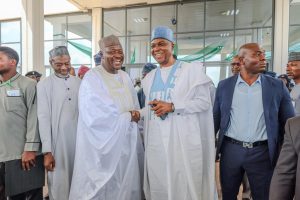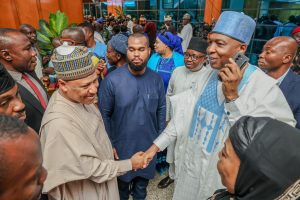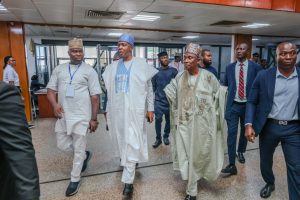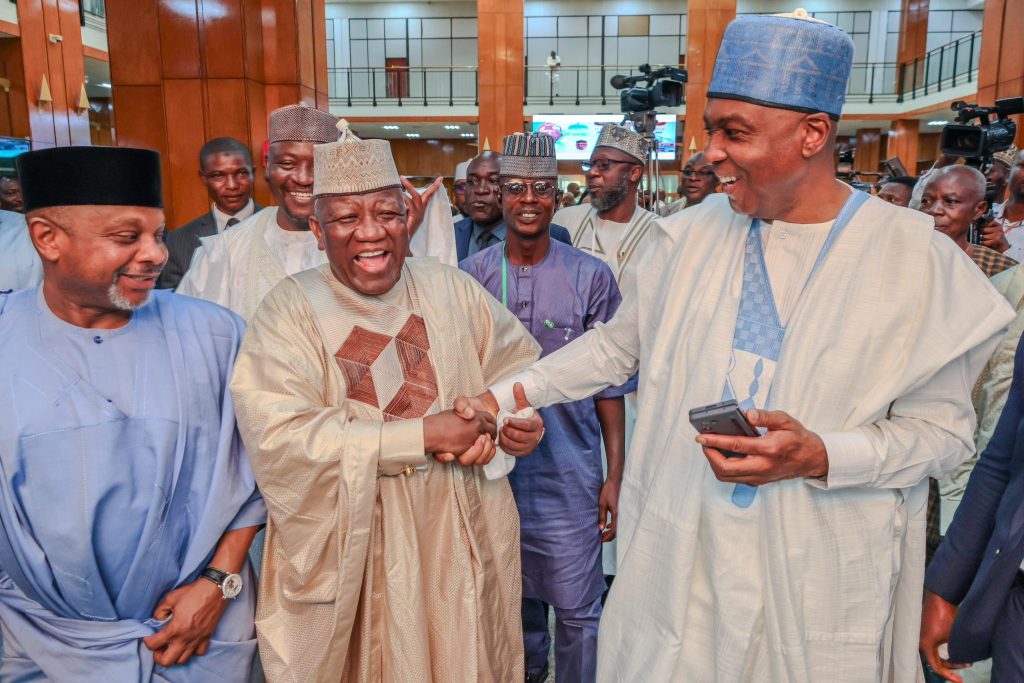The Nigerian leadership did not gather in Aso Rock Villa, the foyer of the Supreme Court, or the covered seats of Eagle Square. We are here — in the parliament — to celebrate representative government.

By Abdulrahman Aliagan,
As Nigeria marked the 26th anniversary of its return to democratic rule, a powerful and symbolic message reverberated from within the hallowed chambers of the National Assembly. In remarks originally prepared for the Joint Session but abridged due to time constraints, former Senate President, Dr. Abubakar Bukola Saraki, CON, offered a reflective and inspiring commentary on the nation’s democratic progress — a message he later shared via official channels.
Dr. Saraki, who presided over the 8th Senate, stood out as he reaffirmed the critical role of the legislature in sustaining democracy, declaring the parliament as the “bedrock of democracy” and the most emblematic of democratic values among the three arms of government.
Speaking under the theme, “The National Assembly and Nigeria’s Democracy in the Last 26 Years,” Saraki began by acknowledging the presence of President Bola Ahmed Tinubu, Vice President Kashim Shettima, Senate President Godswill Akpabio, Speaker Tajudeen Abbas, as well as other principal officers, past presiding officers, and members of the 10th National Assembly. He commended the current leadership for choosing the Green Chamber of the National Assembly as the symbolic venue for the celebration.
“Today’s gathering indicates clearly that the legislature is the bedrock of democracy,” Saraki stated. “The Nigerian leadership did not gather in Aso Rock Villa, the foyer of the Supreme Court, or the covered seats of Eagle Square. We are here — in the parliament — to celebrate representative government.”

With just three minutes allotted to his scheduled address, Saraki deftly made five key points in his remarks, beginning with a heartfelt congratulation to Nigerians at home and abroad. He emphasized that 26 years of democratic practice is no small feat, especially in a country with a complex political history. He credited the collective perseverance of Nigerians for this achievement.
In a solemn tribute, Saraki turned the nation’s attention to the unsung heroes of Nigeria’s democratic struggle — from prominent political figures to anonymous street protesters who paid the ultimate price. “Without their sacrifice, we would not be here today,” he said, urging the nation to never forget the cost of freedom.
A particularly poignant moment in his address came when he praised President Tinubu’s choice to attend the joint session in person, interpreting it as a profound recognition of the National Assembly’s foundational role in democratic governance.
“This symbolic action speaks volumes,” he noted. “It is an acknowledgment that among the three arms of government, the one that best symbolizes, represents, and exemplifies democracy, is the parliament.”
Saraki’s remarks, though brief, resonated deeply — offering a compelling reminder of the centrality of legislative institutions to democratic development. His tone combined both celebration and sober reflection, urging all stakeholders to continue safeguarding the gains made since 1999.

As Nigeria navigates the complex challenges of democratic consolidation, Dr. Saraki’s words serve as both a tribute and a challenge: a tribute to the endurance of the Nigerian people, and a challenge to all institutions — particularly the National Assembly — to remain steadfast as the custodian of the people’s mandate.
Indeed, on this Democracy Day, the chamber echoed not just with speeches, but with a reaffirmation of faith in the democratic process, the rule of law, and the enduring power of representative governance.


